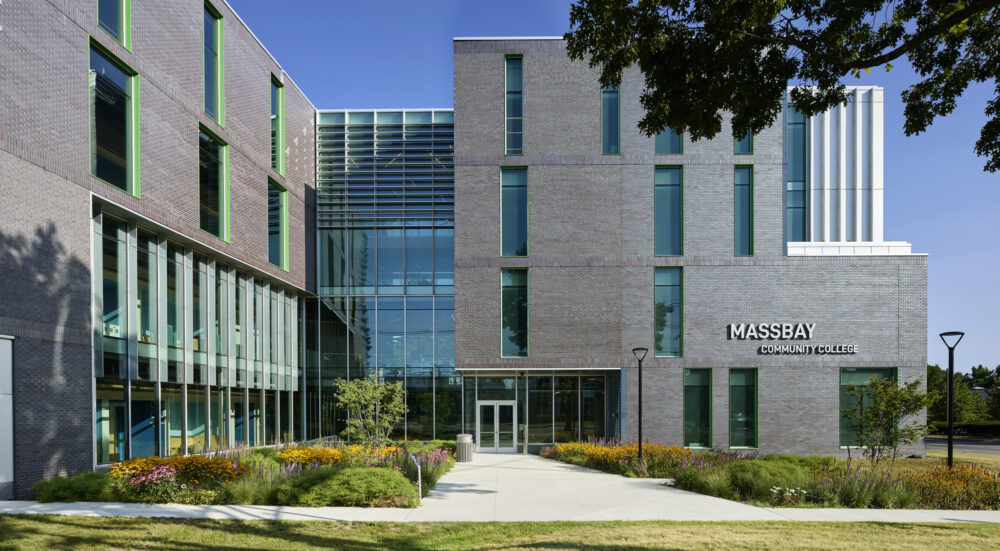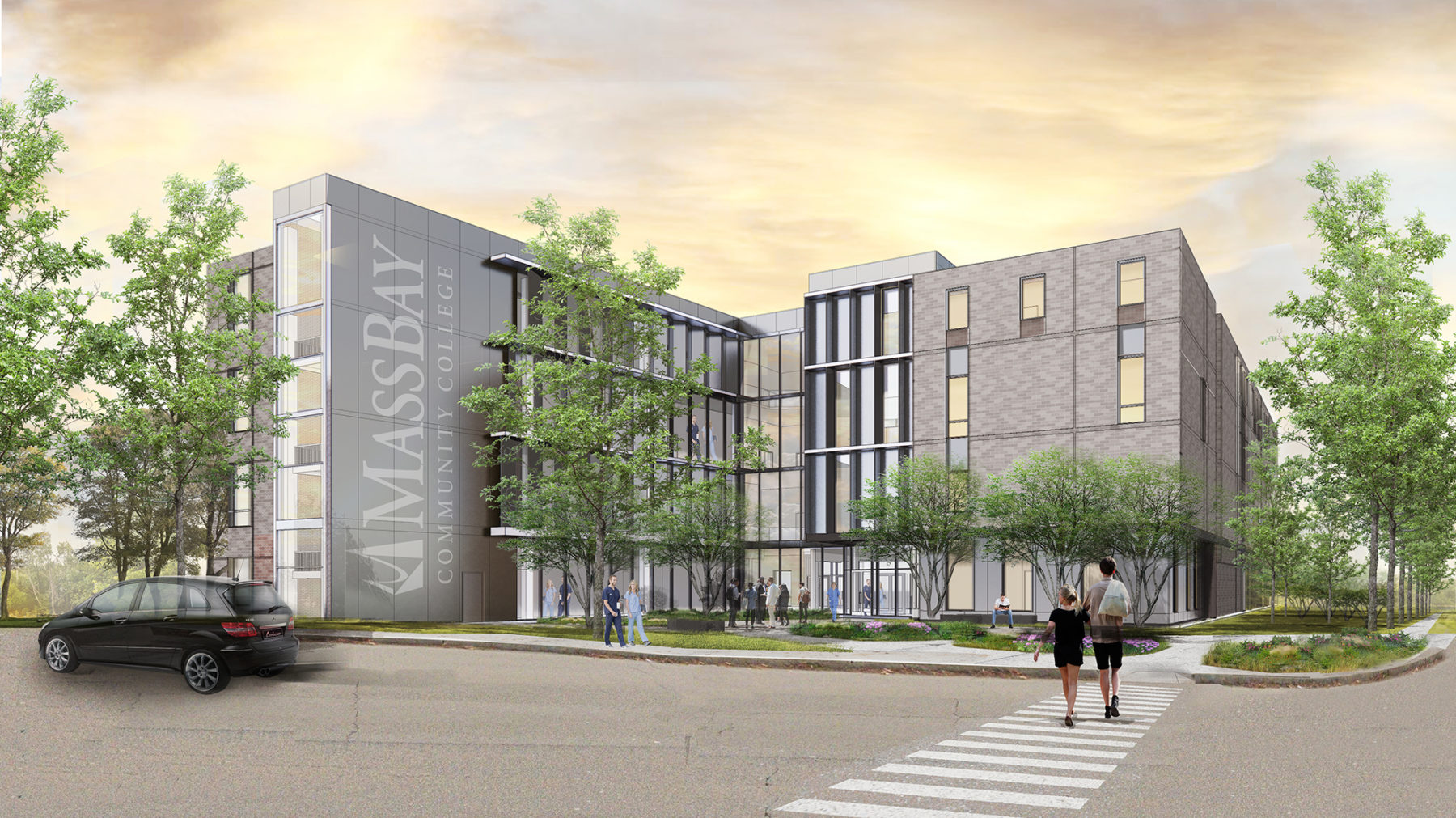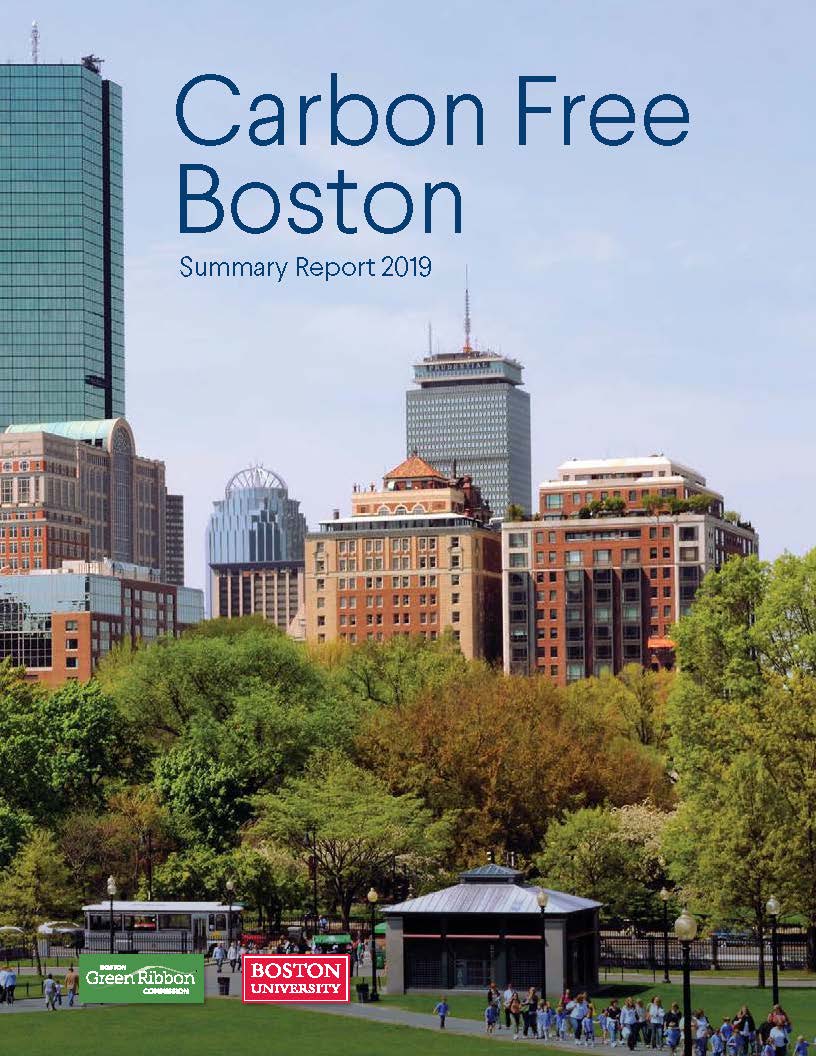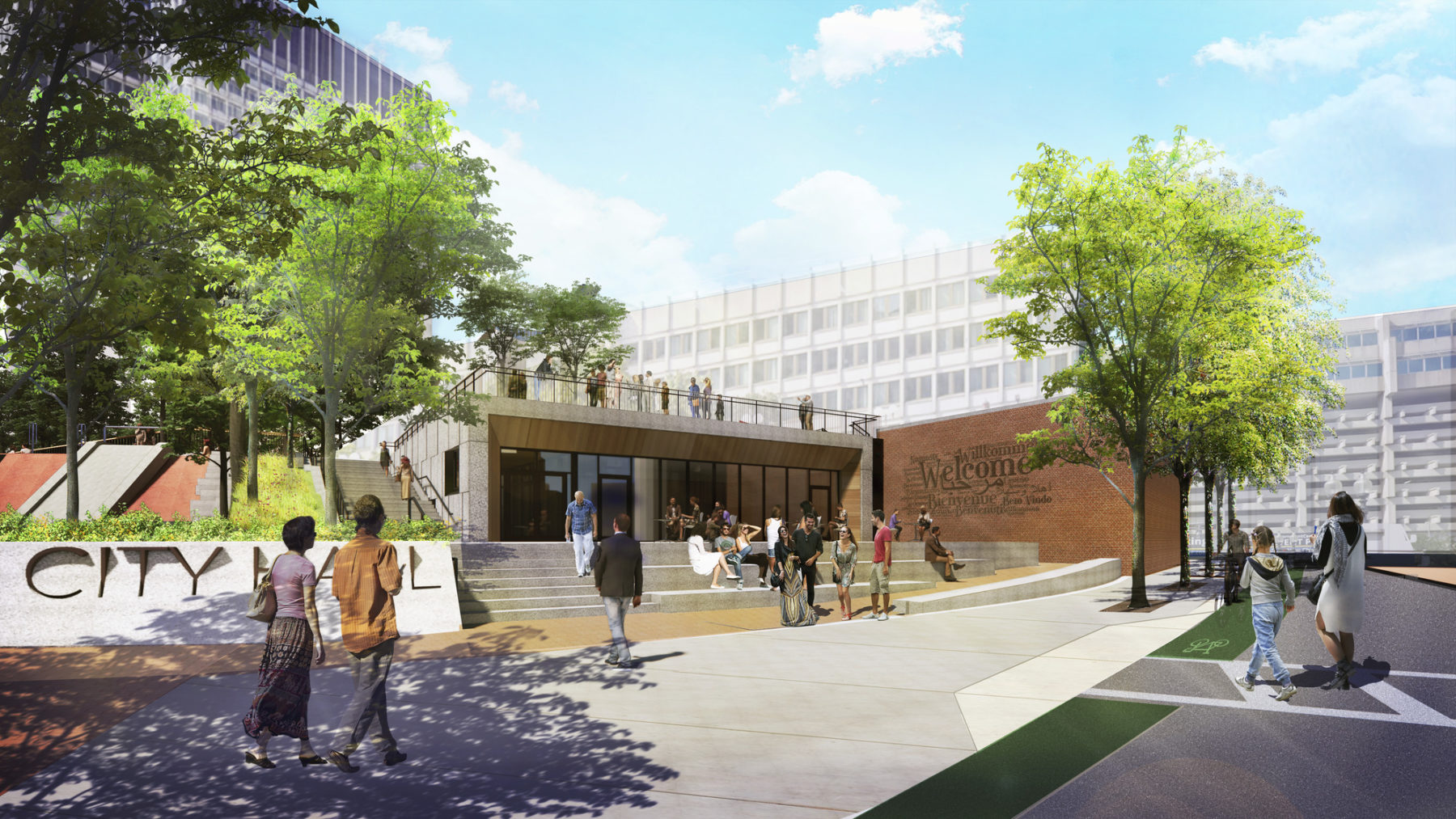
MassBay Community College Center for Health Sciences, Early Childhood, and Human Services
Framingham, MA
 Sasaki
Sasaki

Across the design community, architects, and planners are grappling with how to address global climate change in our work. As designers we are optimists, and are looking for ways to build a healthier, more equitable future. But, we must recognize that as an industry, building and construction accounted for over 50% of global emissions in 2020—and over half of those emissions are from energy we use to power our buildings.
Sasaki and many of our clients have found that the best strategy to reduce our emissions is a simple one: electrification. By eliminating fossil fuels completely from our buildings in favor of renewable solar and geothermal energy, we open a range of benefits:
Sasaki has now designed seven all-electric buildings in partnership with a variety of clients, including universities, community colleges, private developers, and municipal clients. Though our clients are diverse, they are united in common vision: each of them has adopted climate action plans and goals and aims to fight climate change by reducing energy use and carbon emissions.


The City of Boston, for example has long held high sustainability standards, with a permit process that involves Green Building approvals and a Climate Resiliency Checklist. Last year the City developed the Carbon-Free Boston plan advocating for strategic electrification. Sasaki’s redesign of City Hall Plaza and the visitor services pavilion is an excellent demonstration of this commitment in action, manifesting in all-electric power for the building systems.
The State of Massachusetts has a similar approach to the energy agenda for Sasaki’s latest net-zero design for the Massachusetts Bay Community College Health Science Center, which will house health sciences, early childhood education, and human services. The all-electric building we designed generates its power from the sun and the ground, with ground-source heat pumps and solar photovoltaic arrays planned for the building roof and parking lot canopy.

Image courtesy of Amherst College
Amherst College has recently selected Sasaki as Architect of Record with design architect Herzog and deMeuron for their new Student Center and Dining Hall. In keeping with Amherst College’s ambitious Climate Action Plan to achieve carbon neutrality by 2030, the new building, including the commercial kitchen for all 1800 College students, will be powered by all-electric systems.
These visionary Sasaki clients join universities as well as forward-thinking municipalities nationwide, from Berkeley CA to Somerville MA, in calling for electrification as our best hope to battle climate change and ensure a better future for generations to come. In the next decade the trend to electrify new construction will accelerate, making it a norm. Until that happens, telling the stories about the benefits of electrification is one way of ensuring that more clients include electrification as a key goal — and provide us with the challenging projects we love.